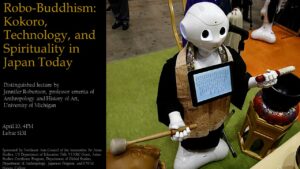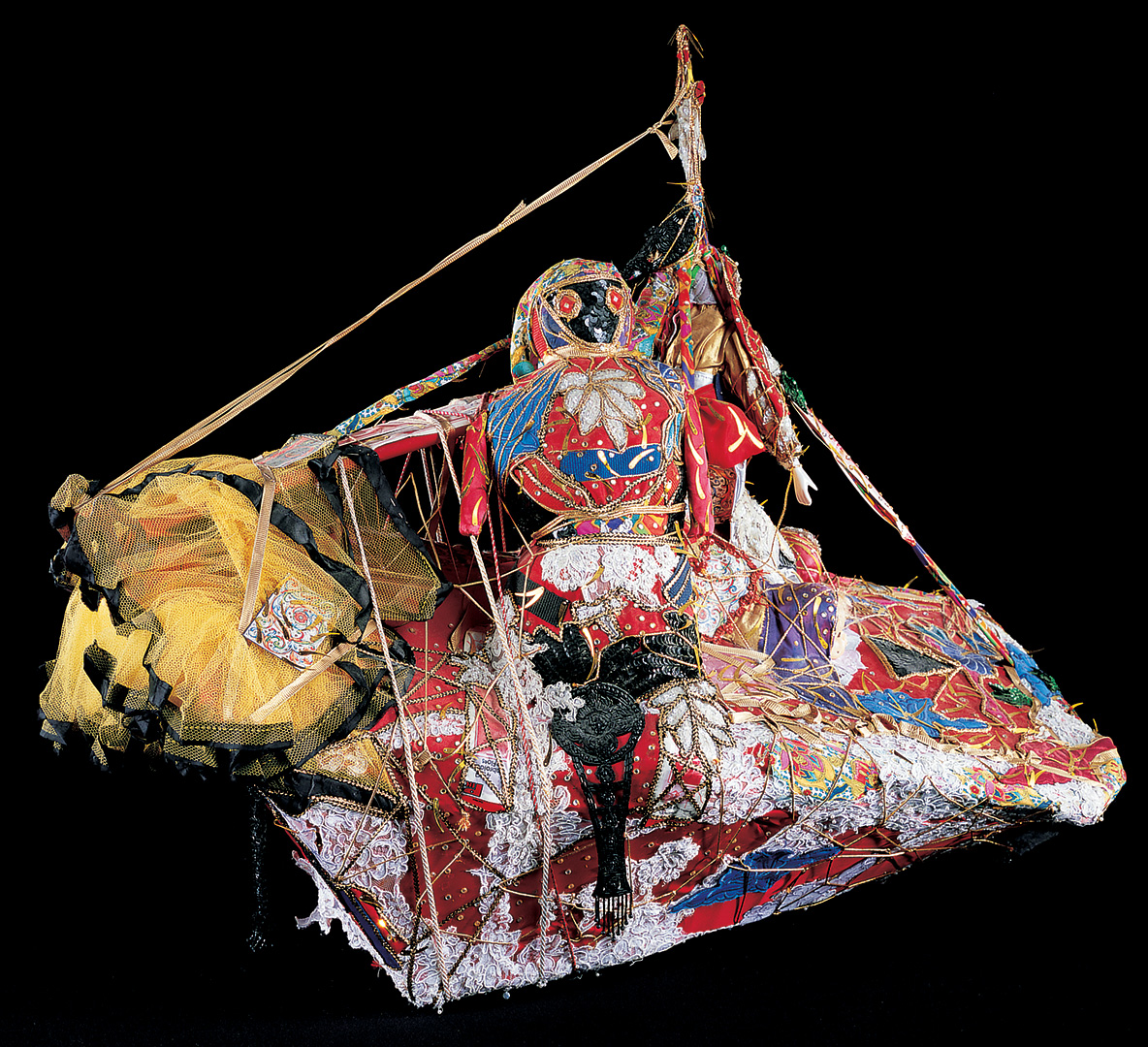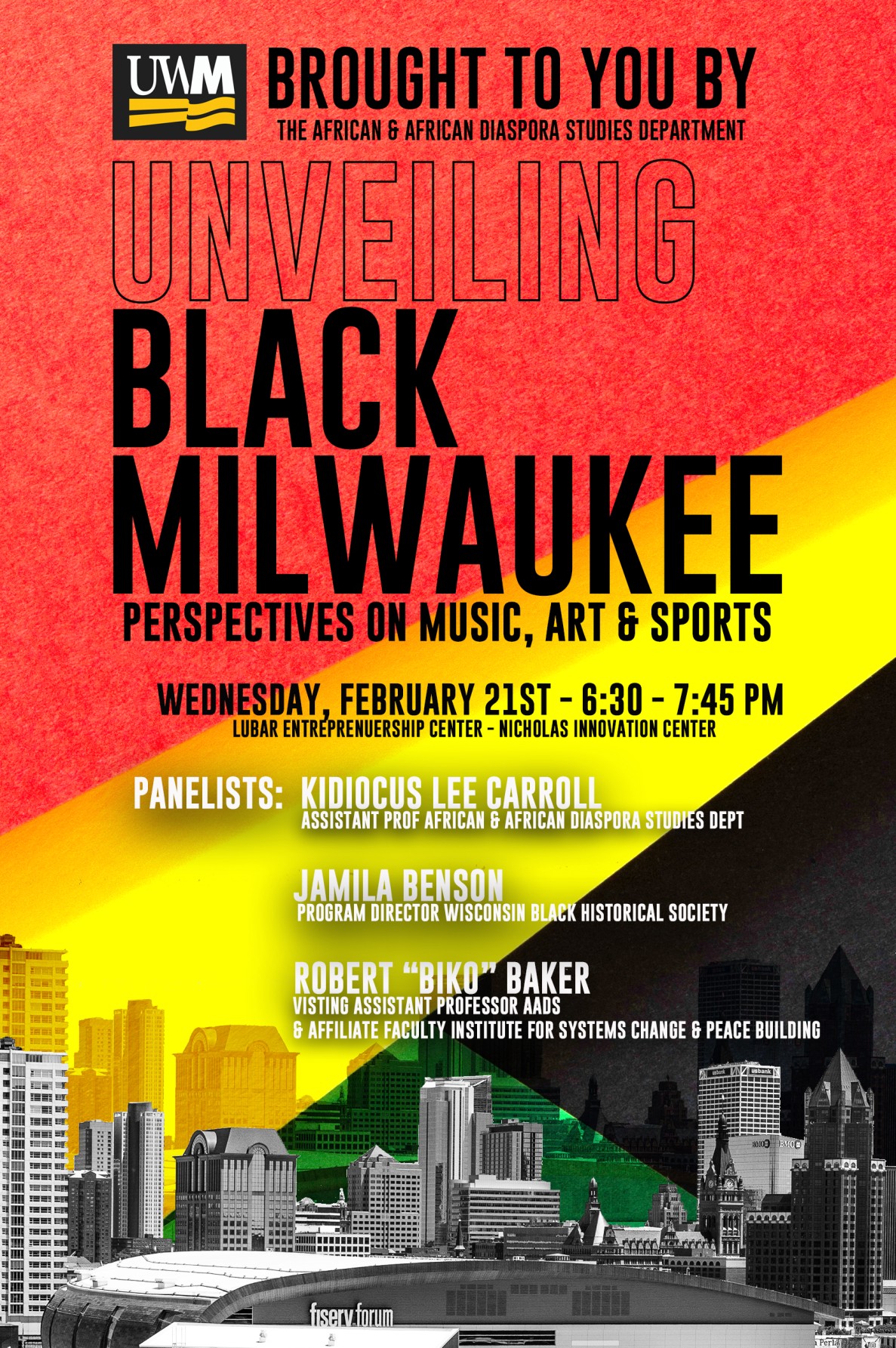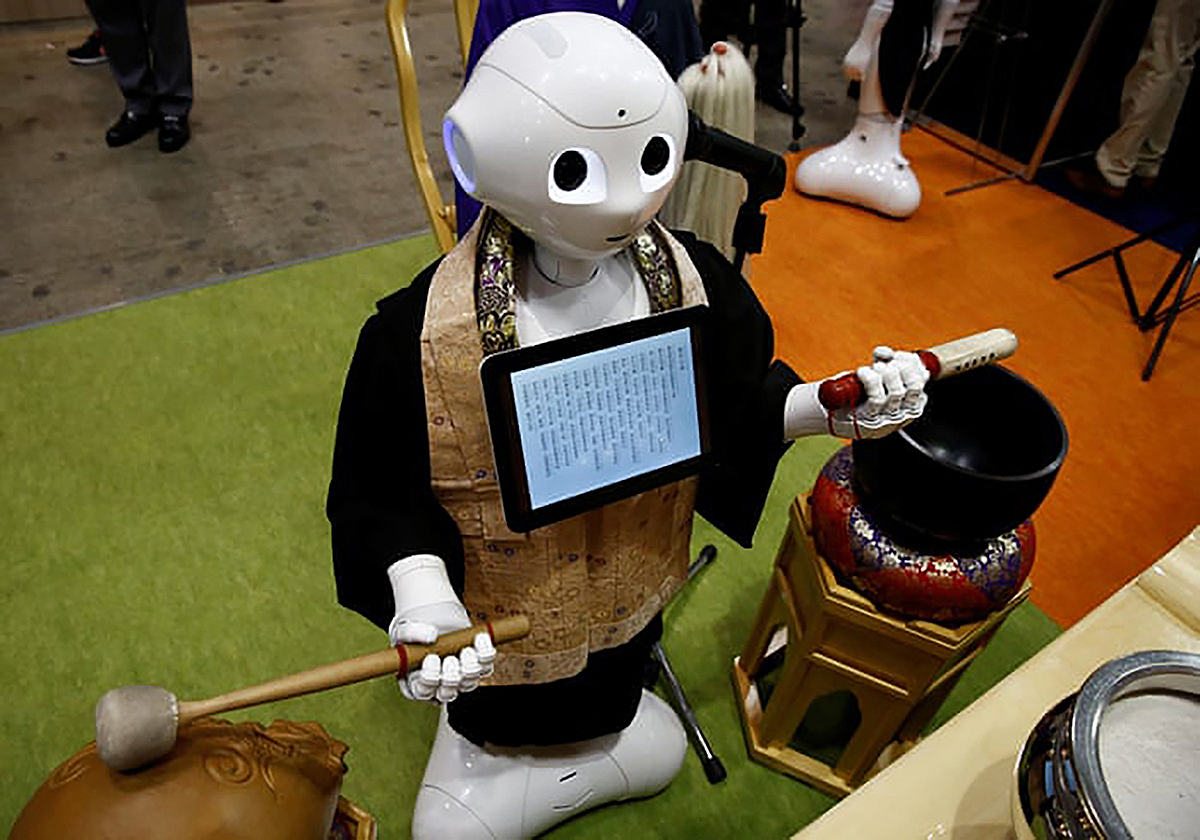Public lecture by Dr. Jennifer Robertston, Professor emerita, Departments of Anthropology and Art History, Michigan State University
Kokoro (心) is widely and innovatively used in everyday parlance and figures in many Japanese idioms. Kokoro connotes intellectual, emotional, and spiritual states and attributes. Kokoro is also a key lexeme in Japan’s two main religions: the animistic native Shintō and Buddhism. In August 2017, SoftBank’s humanoid robot Pepper role-played as a Buddhist priest at a funeral services expo under the supervision of a human priest who assessed whether the robot was able perform “with kokoro.” When theorizing human-robot interactions, roboticists also include kokoro as a crucial quality and effect of social engagement. Kokoro figures centrally in the titles of several Japanese books on robots and AI. Several cognitive roboticists are working to “imagineer” (imagine + engineer) robot kokoro through innovative software algorithms and creative interpretations of AI. Pepper was conceived as a humanoid robot “with kokoro.” Technology and robots have been developed and applied for both secular and religious purposes, although the appropriation of robotic technologies and AI for religious purposes is perhaps less recognized than their secular applications. This presentation explores how religious technologies and affective human-robot relations are conjointly imagineered theoretically and in practice.




